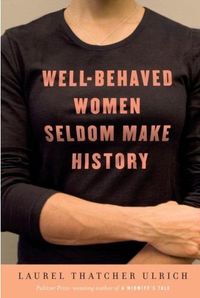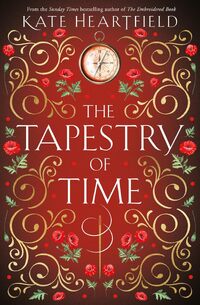

Purchase
Well-Behaved Women Seldom Make History celebrates a renaissance in history inspired by amateurs, activists, and professional historians. It is a tribute to history and to those who make it.
Knopf
September 2007
On Sale: September 4, 2007
320 pages
ISBN: 1400041597
EAN: 9781400041596
Hardcover
Add to Wish List
Non-Fiction
“They didn’t ask to be remembered,” Pulitzer Prize-winning
author Laurel Ulrich wrote in 1976 about the pious women of
colonial New England. And then she added a phrase that has
since gained widespread currency: “Well-behaved women seldom
make history.” Today those words appear almost everywhere—on
T-shirts, mugs, bumper stickers, plaques, greeting cards,
and more. But what do they really mean? In this engrossing
volume, Laurel Ulrich goes far beyond the slogan she
inadvertently created and explores what it means to make
history.
Her volume ranges over centuries and
cultures, from the fifteenth-century writer Christine de
Pizan, who imagined a world in which women achieved power
and influence, to the writings of nineteenth-century
suffragist Elizabeth Cady Stanton and twentieth-century
novelist Virginia Woolf. Ulrich updates de Pizan’s Amazons
with stories about women warriors from other times and
places. She contrasts Woolf’s imagined story about
Shakespeare’s sister with biographies of actual women who
were Shakespeare’s contemporaries. She turns Stanton’s
encounter with a runaway slave upside down, asking how the
story would change if the slave rather than the white
suffragist were at the center. She uses daybook
illustrations to look at women who weren’t trying to make
history, but did. Throughout, she shows how the feminist
wave of the 1970s created a generation of historians who by
challenging traditional accounts of both men’s and women’s
histories stimulated more vibrant and better-documented
accounts of the past.
Comments
No comments posted.
Registered users may leave comments.
Log in or register now!
| 


 © 2003-2025 off-the-edge.net
all rights reserved Privacy Policy
© 2003-2025 off-the-edge.net
all rights reserved Privacy Policy